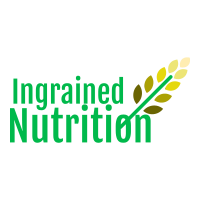Endometriosis or endo is a chronic condition, occurring in 1 out of 10 women of reproductive age with 7 out of 10 women with a family history. Likely you will know someone with it whether you are aware of this or not, many people unless they are affected directly will not have heard of endo as it gets little airtime and little is known about this condition which currently has no cure.
Endometriosis is the presence of cells that are similar to the lining of the uterus in other parts of the body (where they should not be) such as other reproductive organs and the intestines. Once implanted, these cells become lesions, causing an inflammatory response, resulting in adhesions and scarring that causes significant pain and in some cases fertility issues. Some of the causes of endo include retrograde menstrual blood flow, metaplasia, and family history. The gold standard of diagnosis is through a laparoscopy procedure with a tissue biopsy.
Women with endometriosis may experience little symptoms or a wide range of symptoms such as painful periods, pain during sex, heavy menstrual bleeding, bloating, altered bowel habits, and pain going to the toilet to name a few. There are a lot of overlapping symptoms between endo and irritable bowels syndrome (IBS) such as nausea, bloating, diarrhoea, constipation, stomach discomfort, stomach distention.
Irritable Bowel Syndrome & Endometriosis
Because of the symptom overlap between IBS AND endo, many people with endometriosis will respond well to dietary changes to improve the overall quality and fibre in their diet or a low FODMAP, 3-stage elimination diet for symptom improvement. The guts of people with endometriosis have also been found to contain different gut bacteria to those without endometriosis, potentially indicating a role of the microbiota in the condition, however it is a chicken or the egg situation, whether endo itself alters the microbiota or whether our gut microbiota plays a role in development of the condition we do not yet know.
Anti-Inflammatory Diet & Endometriosis
Endometriosis contributes to inflammation in the body, raising out inflammation markers which is why anti-inflammatory medications are often prescribed for women with endo. For this reason an anti-inflammatory or Mediterranean style diet may be a good thing to discuss with your dietitian. An anti-inflammatory diet is based on the following:
- Increased intake of omega-3 fatty acids from sources such as oily fish, extra virgin olive oil, nuts, seeds and avocado
- A reduced intake of processed foods and refined carbohydrates e.g. white breads and bacon.
- A reduced intake of red meat aiming for <350g/week, high quality
- Limited alcohol intake
- A high intake of fruits and vegetables
- A high intake of wholegrains
Iron & Endometriosis
Women with endometriosis may also be at an increased risk for iron deficiency due to heavy blood losses during their menstrual period or a longer than typical menstrual period (over 7 days). Including 150g of quality lean red meat twice a week and other iron rich foods such as rolled oats and spinach are the best ways to ensure you are eating enough food sources of iron. Pairing your iron rich foods with a source of vitamin c can also aid in absorption such as broccoli, capsicum, kiwi fruit, strawberries, and oranges. Iron inhibitors such as tannins, calcium and phosphorus may impair the absorption of iron from foods. For this reason, keeping your cups of tea and coffee to in-between meals is a good option, the same goes for wine and dairy products in larger serves.
Soy & Endometriosis
It is commonly believed soy products may increase the risk of endometriosis or worsen endometriosis because it is a phytoestrogen or plant-based oestrogen. However, there is no clinical studies to support this claim however there is one study which demonstrated a protective effect of soy consumption on the development and progression of advanced endo.
An Accredited Practising Dietitian can help you manage the nutrition aspects of endometriosis and find an approach that is individualised for you and your symptoms.
By Caitlin Mannion, Accredited Practising Dietitian




